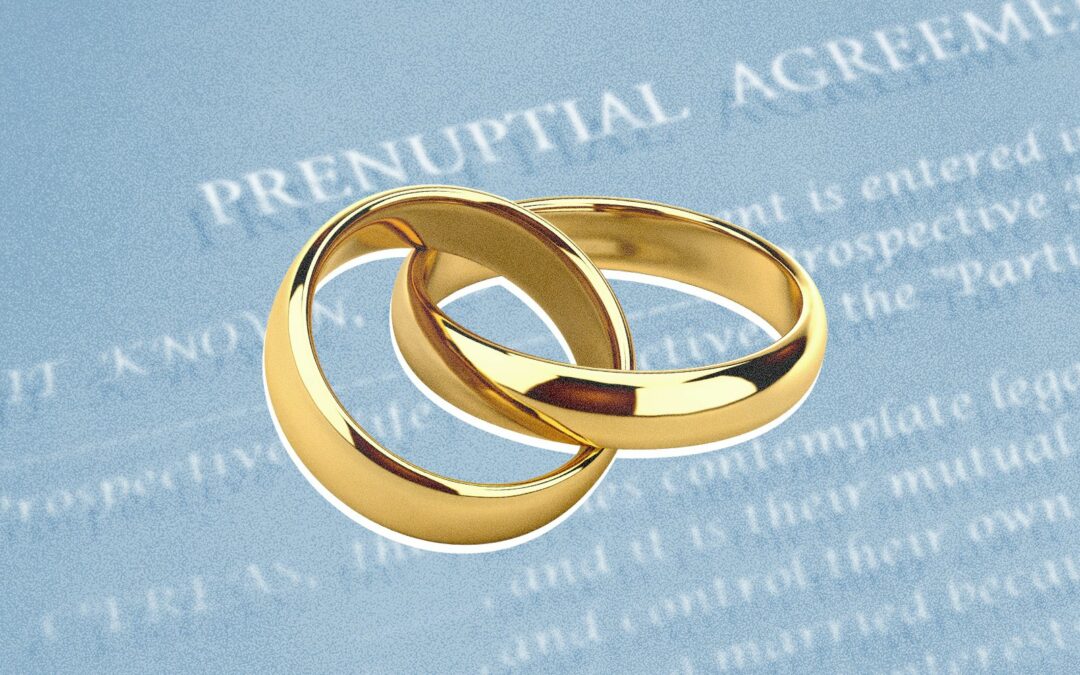Given the rate of divorce among public figures, politicians, and celebrities, generally in recent times in Nigeria, the essence and acceptance of prenuptial agreement has been gaining momentum amongst the general public.[i]
A prenuptial agreement (also commonly referred to as a “prenup”), as the name suggests, is an agreement signed by an intending couple before they tie the knot. It establishes their respective rights to property (acquired before and after the marriage) and clearly states the extent of support they are each entitled to, in the event of divorce or death, as the case may be.[ii]
The agreement is usually broad enough to cover salient issues but may be tailored upon request. The general heads of this agreement are as follows:
- debts,
- entitlement to retirement plans and accounts,
- separate and joint property,
- living expenses,
- gifts,
- separation and divorce,
- rights of parties to property in the event of death,
- child support/maintenance,
- amongst others.
In some circumstances, parties may simply agree that in the event of death or divorce, they would only be entitled to all they acquired before they got married or a percentage of either party’s wealth, or there will be no splitting of their combined assets. These provisions are so placed to disrupt the potential automatic “financial merger” of the couple’s wealth and obligations if these measures are not put in place.
The pros of prenups include a clear division of assets according to the intending couples’ preferences, protection of a spouse from the other spouse debts, protection for pets and dependents, and compensation for specific actions. The cons, however, are that it can cause unintended discomfort or hurt feelings, involves predicting future events that may not even occur, also both parties may not be equally positioned to engage in the negotiations.[iii]
It is imperative to bear in mind that while the law does not expressly lay down some guidance with respect to the drafting of and enforcement of these prenups, they are generally valid where the general terms of a contract are complied with. Most critical of this will be the fact that parties freely entered into the agreement.[iv] Section 72(2) of the Matrimonial Causes Act recognises the right of parties to enter into prenups and post-nuptial agreements. However, the validity or the extent to which the agreement will bind the parties is at the court’s discretion. There is no reported Nigerian case law on pre- or post-nuptial agreements because they are not common in Nigeria.
However, there are salient factors that must be borne into consideration before drawing up a prenup:
- Fairness: Parties must be honest and give a full disclosure of their assets (wealth) and liabilities.
- Protections of pets
- Lifestyle and certain behaviors of the spouse can increase the probability of divorce or death
It must be borne in mind that whilst a prenuptial contract is one of the compelling documents a court will look into when making a settlement order, it will only uphold its contents if they are found to be in accordance with the law and what is ‘fair’ in the circumstance.
A prenuptial agreement, when properly negotiated, can protect the following assets and interests:
- Retirement or education funds that either party may have accumulated before marriage.
- Property that either party owns at time of marriage.
- Property interests of any children from previous relationships.
- Obligations of spousal support should the marriage dissolve.
- Educational and religious upbringing of children born from marriage.
- Finances of each party and responsibilities should the couple decide to part ways.
- A provision that one spouse isn’t obligated to pay the debts of the other spouse.
- Handling an inheritance.
- Ownership rights in life insurance or disability policies.
If a judge, however, feels that the agreement is unfair or conflicts with a legal standard, these provisions can be unenforceable. Worthy of note is the fact that a prenup typically does not cover the following as they are matters that must be brought before a court of law for independent consideration and judicial pronouncement:
- Child custody or visitation matters.
- Child support.
- Alimony in the event of a divorce.
- Day-to-day household matters.
- Anything or subject prohibited by the law.
Common mistakes
There are considerable concerns when the provisions of a will and prenup have conflicting provisions. In other to avoid such situations, it is best to provide corresponding clauses in one’s will expressly. In the absence of such necessary provisions, where a conflict arises, given the fact that the Will is more recent and the intention is always to honour the wishes of the testator, the Will may take precedence.
Furthermore, most prenups are open-ended and do not state the duration of their validity, which then causes some uncertainty and confusion as to the wishes of the parties. It is also usually a cautious move to put a “sunset clause,” which sets an expiration date for the prenup agreement.
Conclusion
Intending couples should dispassionately discuss whether or not they want to have a prenup before they get married, given the above considerations. It could make a world of difference to the “stronger” party in the couple, in the event of death or divorce.
[i] Prenuptial agreements were previously commonly used in European countries and have a wider acceptance there than in African countries.
[ii] Merriam Webster Dictionary accessed from. https://www.merriam-webster.com/dictionary/prenuptial%20agreement accessed on 25/01/2022
[iii] https://www.legalzoom.com/articles/prenuptial-agreements-what-they-can-and-cannot-protect assessed on 26/01/2023
[iv] Cap M7,

